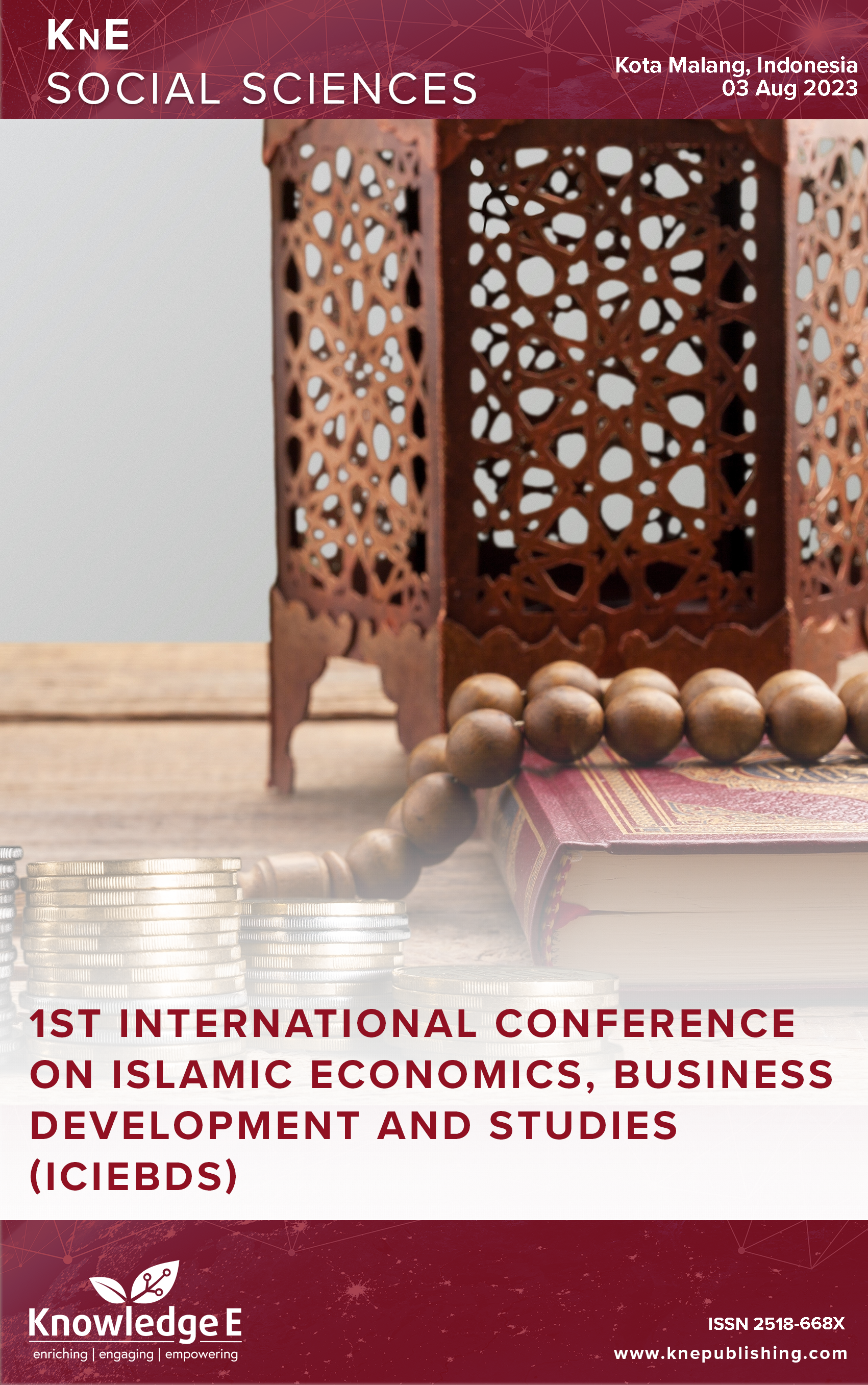Phenomenological Study of Women Entrepreneurs and Their Impact on Socioeconomic Growth in Malaysia
DOI:
https://doi.org/10.18502/kss.v9i16.16270Abstract
This study analyzes women entrepreneurship and socioeconomic growth in Malaysia. In this research, four factors and obstacles facing entrepreneurial growth were identified. To answer these four objectives, the research was conducted using a focus group method. A selected group of 10 female entrepreneurs were interviewed online focus group discussions. A structured questionnaire was also distributed to the 10 participating entrepreneurs which was analyzed using the NVIVO software package. The research results were tabulated based on four themes and subthemes. In conclusion, this research has established a socioeconomic model of women’s entrepreneurship in Malaysia. The causal relationship model configures variables as the main guide for stakeholders and entrepreneurial practitioners. This research is a phenomenological study of women’s entrepreneurship and its influence on their socioeconomic growth in Malaysia. The study provides implications for stakeholders in overcoming women’s entrepreneurship problems and obstacles to women’s business growth. Further research on women’s entrepreneurship in industrial and business sectors is recommended.
Keywords: women entrepreneurship, social economic growth
References
OECD. Women active in the ICT sector. Publications Office of the EU; 2013.
Teoh WM. Towards strengthening the development of women entrepreneurship in Malaysia. Gend Manag. 2014;29(7):432–53. DOI: https://doi.org/10.1108/GM-10-2013-0122
Teoh WM, Chong SC. Improving women entrepreneurs in small and medium enterprises in Malaysia: Policy recommendations. Commun IBIMA. 2008;2(4):31–8.
UNDP. (2015). Sustainable Development Growth.
Malaysia Business Outlook 2019. (2020). Joint Report ACCA and MIA.
Hoe CH, Isa FM, Hin CW, Hashim N, Abdullah AA. Development of women entrepreneurs: The case of Malaysia. World Journal of Social Sciences. 2012;2(6):123–45.
Rashid KM, Ngah HC, Mohamed Z, Mansor N. Success Factors Among Women Entrepreneur in Malaysia. International Academic Research Journal of Business and Technology. 2015;1(2):28–36.
Rashid S, Ratten V. (2020). A systematic literature review on women entrepreneurship in emerging economies while reflecting specifically on SAARC countries. Entrepreneurship and Organisation Change, 77-88. https://doi.org/10.1007/978- 3-030-35415-2_4 DOI: https://doi.org/10.1007/978-3-030-35415-2_4
Anderson AR, Drakopoulou Dodd S, Jack SL. Entrepreneurship as connecting: Some implications for theorising and practice. Manage Decis. 2012;50(5):958–71. DOI: https://doi.org/10.1108/00251741211227708
Saunders MN. Research methods for business students. 5th ed. India: Pearson Education; 2007.
Saunders M, Lewis P, Thornhill A. Research Onion (Figure 5) Research Methods for Business Students. 6th ed. London: Pearson; 2008.
Saunders M, Lewis P, Thornhill A. Research methods for business students. 6th ed. London: Pearson; 2009.
Kerr SP, Kerr WR, Xu T. (2017). Personality traits of entrepreneurs: A review of recent literature. HBS Working Paper, 18-047. DOI: https://doi.org/10.3386/w24097
Afza T, Rashid MA. (2009). Marginalized women social wellbeing through enterprise development: A glimpse of remote women status in Pakistan. Journal of Chinese Entrepreneurship Bingley, 1(3), 248-267. DOI: https://doi.org/10.1108/17561390910999533
Franck AK. Factors motivating women’s informal micro-entrepreneurship: Experiences from Penang, Malaysia. Int J Gend Entrep. 2012;4(1):65–78. DOI: https://doi.org/10.1108/17566261211202981

